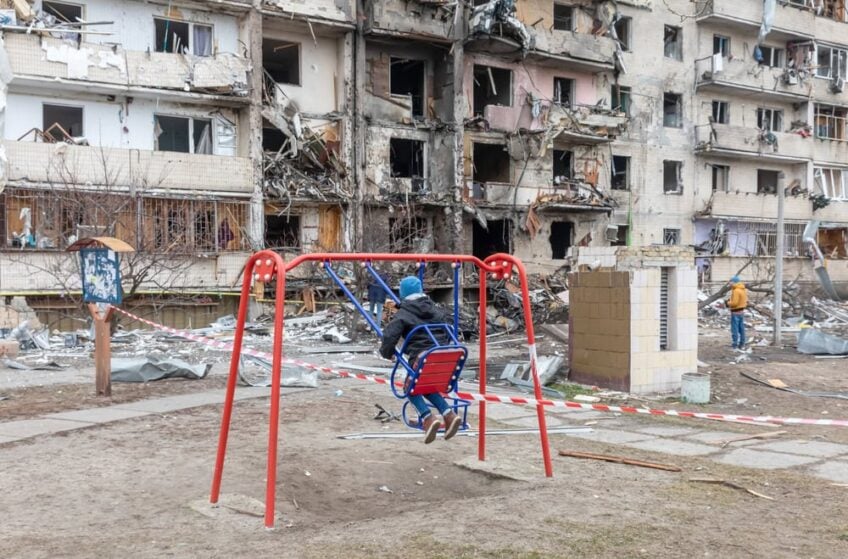Bring the Youngest Victims Home in Russia’s War against Ukraine
Repatriating these children to Ukraine must be prioritized.
In advance of President Donald Trump’s meeting with Russian President Vladimir Putin in Anchorage, Alaska, last week, First Lady Melania Trump penned a letter to the Russian leader urging him to consider the children whose lives have been upended by the Kremlin’s war against Ukraine.
She wrote, “In protecting … these children, you will do more than serve Russia alone – you serve humanity itself. Such a bold idea transcends all human division…” The First Lady’s sentiments are echoed by the White House, which has expressed concern over the reports of Ukrainian children abducted by Russia since February 2022.
Russia’s invasion has been particularly cruel to Ukraine’s youngest citizens. Many have been forced to flee their country; been subjected to human trafficking; lost family members; and suffered grievous injuries during attacks on their cities and villages. This serves as a poignant reminder that military conflict does not spare children.
Since the onset of hostilities, however, the Kremlin has added another, more atypical assault on these young people. Russia is systematically taking Ukrainian children through force and deception, often relocating them to Russia, although some are reportedly being held in Belarus. Chillingly, there is evidence that Russia developed its plans to abduct Ukrainian minors before the invasion began, even devising a strategy to relabel what are effectively kidnappings as “humanitarian evacuations.”
Some of these young people are housed in reeducation camps where they are subject to Russian indoctrination to strip them of their Ukrainian identities, and others are advertised on adoption websites where prospective “parents” can sort on characteristics ranging from hair and eye color to personality traits. Ukrainian teenage males have been placed in Russian junior paramilitary organizations where they are trained and conscripted to fight against their own countrymen. This 2024 ALEC Women’s Leadership video featuring Gillian Huebner, Executive Director of Georgetown University’s Collaboration on Global Children’s Issues, provides some background on the situation.
The Ukrainian government’s verified totals hover at around 20,000 abductees. However, researchers at Yale University’s Humanitarian Research Lab assert the number is closer to 35,000, and Maria Alekseyevna Lvova-Belova, Russia’s Children’s Rights Commissioner, said that her country had “accepted” 700,000 Ukrainian children. Anywhere from tens of thousands to hundreds of thousands of Ukrainian children could potentially lose their national identities as Moscow issues fast-tracked Russian birth certificates and passports.
According to the United Nations Human Rights Office of the High Commissioner, “international humanitarian law prohibits forced transfers and deportation of protected persons”, which includes children “who are not nationals of the party to the conflict in which hands they are found.” The International Criminal Court of Justice (ICC) is investigating these alleged war crimes. In March 2023, the ICC issued warrants for the arrest of Putin and Maria Alekseyevna Lvova-Belova, and many experts contend that the Kremlin’s activities may constitute genocide against the Ukrainian people. Putin’s legal problems likely contributed to the selection of a U.S. location for the bilateral summit with President Trump, as many countries, including several BRICS nations, would be compelled to detain the Russian president if he set foot on their soil.
Repatriating these children to Ukraine must be prioritized. Each day they spend in Russia increases the likelihood of devastating psychological consequences from being separated from their families and from their homeland. Once this war comes to an end, the alleged perpetrators of this crime against humanity must be held accountable to make clear that the world will not tolerate wartime victimization of children.

